By Tom SadlerCoach Sadler catches up with Jimmie Hunt to pass along some guidance for aspriring professional players... 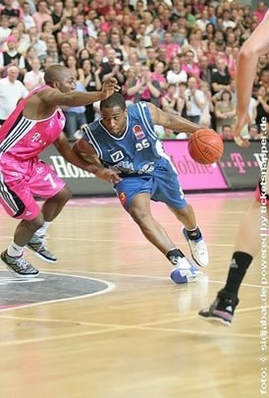 I recently caught up with a good friend of mine Jimmie Hunt, a 12 year veteran of professional basketball to talk about his life as a pro, how he keeps him self in shape, his advice to players that want a career in the game, and how he adjusted to living a life overseas. Hunt, a former graduate of Franklin Pierce University was one of North East’s 10 most exciting players. A 6’2 combo guard who ranks 9th all time in points and is amongst the top 15 all time for assists. He has played in top-level competitions all over Europe in countries such as Germany, Slovenia, and Bulgaria. Through his career, Hunt has helped lead his teams to a number of finals. Along the way he had received a number of great personal achievements such as MVP’S and scoring titles, as well as being a 9 time All-Star in 4 different countries. Q. How have you adjusted to life overseas? And what would be the hardest adjustment you’ve had to make? Adjustment to life overseas is a process, but after time it becomes easier. I personally think the first year is the toughest. Different culture, food, way of life, different basketball style, friends etc. It is a big life change. For me, the adjustment came with really trying to meet people, learning the culture and traditions, trying new things, exploring new places, and finding activities that I like to do in my free time. Now I have learned to appreciate new places, and it broadened my mind to how big and great the world is. The hardest adjustment is being away from your family and friends. It’s very hard and can really affect your mood and focus. Nowadays, technology helps because you can always be in contact and connected with friends and family back home. Q. How would you compare the leagues you’ve played in as a pro to the collegiate level? I would say that the professional game and college game is a lot different. College is very fast, very athletic, and you are playing with a group of guys that are your age (18 -23). I think the goal in college is to be faster and stronger than other teams. Professional ball is slower but more strategic. The goal is to find the easiest way to score. It’s about creating mismatches and exploiting them. Pro level is also more demanding in your personal effort. It’s a long season and an everyday grind. Q. What does your summer training regimen look like? My summer regimen has changed over the years. Now I am an older player so I try to take care of my body as much as possible. Lifting weights is a big part of my training now. When I was younger I would get up early for a morning run to start the day, which was about 2 to 3 miles, 5 times a week. I would make sure to get a good stretch after and eat a well-balanced breakfast. Now that I’m older, I don't run as much but I love to swim and I ride the bike. Both are great for cardio and keep the legs strong and in shape. In the afternoon, usually in the summer my friends (other professional and college players) are home, so we usually meet up at a gym to lift weights and then play. I play around 3 times a week. The other days, I used to train myself individually. Shoot a lot of shots, work on ball handling and foot work. Sunday is my rest day. Q. What’s the best advice you’ve ever had from a coach/mentor?
My father trained me as a kid and mentored me. And he would always tell me that the only person that could stop me is me. As I got older, I began to understand this more. I realised that basketball is a mental game just as much as a physical game, so I would train very hard and always be prepared. I would also study the game, study other players and teams so that I would always be ready and find a way to be effective on the court. This advice my father told me is very true and stuck with me throughout my career. If I didn’t work hard or prepare, then all I was actually doing was stopping my own progress and development. Q. What’s basketball taught you that you carry over into the rest of your life? Basketball has taught me many different things. I will list a couple that are really important to me. One thing I learned was working with other people. Basketball is a team sport, and it’s an interesting challenge at times interacting and motivating others as well as keeping yourself focused and motivated to achieve a goal. In life, we deal with different situations like this, whether it’s dealing with siblings, a spouse, or even just your friends. The same principles need to be applied. I have also learned how to deal with the highs and lows of winning and losing. Basketball is an emotional sport. It's very hard to keep control of your feelings in certain situations. But in the game without control you can hurt not only your chances for success, but also of those around you. In life, we deal with many different things that a majority of the time we have no control over. We can only control ourselves and our own emotions, as well as encouraging others around us. One last very important lesson I learned was how to be completely focused and dedicated. Basketball takes a big commitment and to be really successful, much is required. I believe that this same commitment is needed for most aspects of your life in order to be successful. I am very pleased to have learned this quality, and to know what it really requires. Throughout my career in basketball, the times I was not as focused, the results would be very evident. This was a great indicator to get back on track. Now I can apply this to my life and whatever I am committed to; the results usually workout in my favour. Q. What advice would you give to younger players that are looking to play college and hope to one day have a career? My advice for young players would be to really set in your mind. If you really want to chase this goal and life, your dedication and will has to be your main focus everyday on and off the court. If you research the best players, the proof is evident. The more you dedicate yourself, the better the results will be. There will be many distractions and opportunities to do things that are not necessarily so harmful, but ultimately do nothing to further your progress. I am not saying do not enjoy your life, but the joy you will get from achieving your lifelong goals and commitment to the game is much more fulfilling and comforting. by ONE2ONE TeamBecause every go-to move needs a counter... 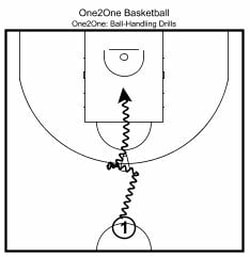 This week's drill is a quick one - and something you can work on pretty much anywhere to help become a more complete offensive player. A good dribble spin move is an essential part of any player's offensive arsenal. However, most defenders are now wise to this particular move, and so, when the attacker turns their back, they slide in the direction of the turn, generally negating the effectiveness of the spin move. As such, we like to work on spin moves in two layers... First, we work on a full spin, getting into the paint and into our finish (whether that's a floater, runner, pull-up, finish from the outside ear, etc.). We work on this from a variety of angles and using each hand - to build our familiarity with the move, but also to build our repertoire of finishes. You can factor this skill into most ball-handling or finishing drills, or add onto the diagrammed drill by adding a defender in to go live / semi-live either instead of the cone, or jumping in after it - so that you get to really work on body positioning and specific finishes to ensure that you're developing appropriate finishes from each angle, with each hand. We then build the drill to help us make the spin move more effective... as with any great offensive move, to make it a true go-to weapon for you, you need a counter, and one of the most effective counters to use is the shoulder hesitation half-spin, as demonstrated here (multiple times) by Isaiah Thomas... 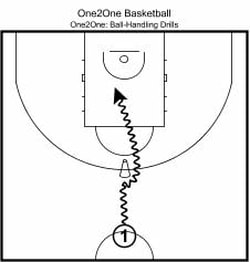 We work on this skill in exactly the same way, attacking the cone and getting into the half spin. A change of pace is essential to making this counter work. You need to slow down going into the spin, and as you drag your foot backwards to plant it, explode back off in a different direction. Again, work through a number of angles, and consider adding a defender... More of our drills are available to purchase in our Drill Bible, or if you'd like to book a workout with a ONE2ONE coach, then please, get in touch!
by Arron MacDonaldCoach MacDonald shares his top three tips for Assistant Coaches - and calls back to his first day as an Assistant for some valuable lessons learned... At ONE2ONE BASKETBALL we want to help players and coaches to engage and grow in the sport that we love. When we think about coaching, it’s easy to think solely of Head Coaches, however, good Assistant Coaches are invaluable assets to a programme. Firstly, let me get this out of the way - I've spent almost all of my time in coaching as a Head Coach. But I've been really fortunate to work with some fantastic Assistant Coaches through the years, as well as learning some really valuable lessons in my (brief) time as an Assistant. With that in-mind, here are my top three tips for Assistant Coaches… Trust The most important part of being a great assistant coach, is being trustworthy. Nobody wants to spend a year (or more!) of their life with someone that they simply do not trust. Trust is a tricky thing to build, particularly if you don’t really know the coach too well coming into the team, but here’s a few tips to help you to gain the trust of your colleagues: Firstly, as an Assistant Coach, you have to understand that your role is to support the Head Coach in delivering their vision. The final say on everything sits with them – as does the relevant blame or praise for that decision – so support them every step of the way, and ensure that you’re doing this both vocally and with positive body language – as when the team sees you engaged with what the Head Coach is saying, they are more apt to also engage positively with the Head Coach. It’s also your role to challenge that coach… but only EVER away from the players! The first thing I learned as an Assistant Coach is that you have until the door to influence the Head Coach’s decision, from that point on you must fall in line. Another very impactful way to build trust is to ensure that when you’re talking about the team, don’t use “I”, “me” or “mine”. It’s “us”, “we” and “ours”. Also, an under-rated communication tool for trust-building is “Pyramid Messaging”; simply put, this is having the same names for things as the other coaches – this ensures you are all “singing from the same hymn sheet”. At some point in time, you will deal with a player that’s unhappy about playing time, or some other perceived sleight from the Head Coach. While it’s really positive that the player is sounding you out, and shows that you’ve gained their trust, it’s essential that you don’t breach the trust of the Coaching Staff in that interaction by having the player believe you’re on their side… The easiest phrase to use in this situation is probably the most dangerous: “I understand where you’re coming from…”. While many of us have likely been in similar situations, and we want to show empathy, communicating in this way can easily be misconstrued. If you want to show the player that you’re listening, and demonstrate empathy, tell them that you “understand they’re frustrated”. You can then either explain that while you’ll pass along how they’re feeling to the Head Coach, ultimately, that’s a conversation for them to have between one another, or (where you and the Coach have already had a conversation on this subject) succinctly explain to the player why this has been happening, and what changes the player needs to make in order to get their desired outcome (if, indeed, this is possible). Work After trust, the next most important thing Head Coaches look for in Assistants is a positive work ethic. I consider a positive work ethic to be a willingness to work hard, all the time, with a positive attitude, doing whatever is needed for the team. Very quickly, I learnt about the work required in being an Assistant Coach. I was sat in the Head coach’s office for our first pre-season meeting, and had been added to the staff as a junior member literally an hour beforehand, there was myself and one other Assistant Coach, who was significantly more experienced than me. The Head Coach asked us what we could pick up on game days and the response from the Lead Assistant shocked me… “Tell me what you want me to take care of, and cross it off your list”. It was a powerful message to the Head Coach, and to me. Your job as an Assistant Coach is to willingly pick up what the team needs you to do. If your Head Coach needs you to do stats and you’re worried about it, then go and stat some NBA games on TV, the scrimmages in training, local league games going on nearby. If it’s a different role they require you to do, and you’re not sure how to do it, then ask the Head Coach (or a more senior member of the coaching staff) how they want it done, or look it up for yourself! It won't take too long to build your competence and confidence in any game day task. Another lesson I learned very quickly was that no job can be beneath you if you want to build positive relationships. If someone’s shooting, go rebound for them. If the water cooler is empty, go fill it up. If the floor needs sweeping, then sweep it. By showing an ability to see what’s going on and solve problems yourself, you’re demonstrating a positive attitude and authentically “playing your role” – which will help the team by providing a role model for everyone else in the team to play theirs. Add Value Going back to that meeting on my first day as an Assistant Coach... I would be remiss not to mention, as I sat there panicking, the first thing the Head Coach happened to mention he needed was in-game stat-tracking. While the other coach had said he would do whatever was needed, he was also brutally honest about his own shortcomings, and said very quickly “If you need me to do that – I can try, but if you give me a tablet, I won’t know what to do with it!”. I picked up the in-game stats for the team for the short time I was with them – but learned a very valuable lesson on day one: do what is needed – but you must add value in doing it! In order to add value, you must make sure your role on the staff is clearly defined. All good assistants want to take stuff off the Head Coach’s plate – so make sure you know exactly what is expected of you during training and games… Does your Coach want you to referee/run the scoreboard during scrimmages in training, or would they rather you coached one of the sides and they can observe? Does your team have a coach run the warmups? If it’s the Head Coach, would they rather hand this over and give themselves some time to prepare for the game? During the game, what can you do to add value? I always tell assistant coaches who shrug at this question to look at an NBA game – where you’ll see the best part of a dozen coaches and analysts, furiously scribbling in notepads, analysing tablets and laptops for every moment the game is in-play, and that's in a league where the majority of the time, the shots go in… so there simply has to be something to do at every other level of the game too! If your Head Coach doesn’t have anything in-mind right now that they’d like you to focus on, then ensure that you’re echoing them through the game, but here’s a couple of suggestions for you…
There are thousands of other resources out there for Assistant Coaches, not least your own Head Coach who should be working throughout the season to develop you, so please don’t think for a moment that this is a definitive list of everything a Head Coach is looking for from you – but we think that if you focus on being trustworthy, being hardworking and adding value as a foundation of your role, you’re much more likely to have success.
If you have any questions, please don’t hesitate to drop us a line, and for Coaches looking for a hand with session planning – don’t forget that the ONE2ONE Basketball coaching curriculum is available from our store, and by subscribing to our mailing list, you’ll get 10% off your first purchase! By ONE2ONE TeamWe catch up with one of the newest members of our team... 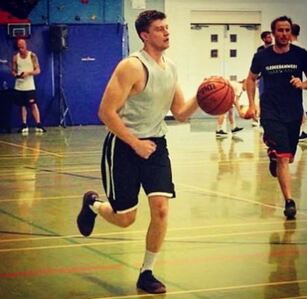 Why did you get into coaching? I got into coaching through Coach Sadler. It wasn't something I originally thought I would get into, but I'm enjoying the new challenge and seeing the game from a different perspective is interesting to me, as is seeing the improvement of the players I get the chance to work with. Talk us through your basketball career to-date… I started playing basketball at 13 years-old when my PE Teacher suggested I go for a trial at Ipswich where I was selected for the team, and I played for them right through the junior teams, academy and Senior Men. What moment from your career to-date are you proudest of? The proudest moment is probably my last season with the U18 men, under Coach MacDonald. We went from a really tough Eastern Conference Division all the way to the last eight in the country, beating an unbeaten team on their home floor and a Premier division side along the way. What film, podcast or book would you recommend to players or coaches? I would recommend "Mind Gym" by Gary Mack. It's a very interesting read and touches a lot on the psychology of sport and the power of positive thinking - which is overlooked by a lot of people. What do you do when you’re not around basketball? When I'm not around basketball, I enjoy working out and lifting weights. Tom SadlerBack in 2015, Coach Sadler caught up with one of his former academy players, Jake Eynon, to shed some light on a day in the life of a student-athlete. 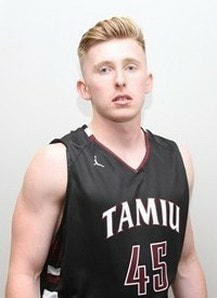 "A Day in the Life of a College Basketball Player" I played at Ipswich Basketball Club from the age of 13 to when I finished school at 19 years old. From there I went to Jacksonville College, in Texas for two years and I am now attending school and playing basketball at Texas A&M International. Before I mention anything else one thing I have to tell other players wanting to go to college is that being a student athlete means that your day is centered on your classes! If I or one of my team mates misses a class we have to run 5 miles at 5am! It is a school at the end of the day, and that’s why we are here. My day starts of at 7am where I get up and start my day by going to the weight room and getting a great full body workout with our S&C coach. Lifting during the season is really important to maintain your strength throughout the year and of course prevent injuries. Whenever I lift I also like to shoot 100 form shots to keep my touch in. From the weight room I will go to breakfast. Our school diner is all you can eat and I take advantage of that, you cannot out work a bad diet!!! By this I mean you have to have a balanced plate with protein carbs and vitamins. I also like to have multiple plates especially when I’m working out multiple times a day. After breakfast I will go to the training room and get treatment, this is a really important part of the day. You have to look after your body and you can do this with icing, stem treatment, and flexibility training. You can’t play if you’re injured, so you need to correctly look after your body. If I’m honest all of my free time during the day is spent in the training room. Most days I will have 3 hours of class. To stay eligible you have to maintain a 2.0 GPA so that is a motive to try hard in school. No grades means no court time. With such busy days we have scheduled team study hall, which is when the whole team including managers goes to the library and does homework. When in class and at school I have a rule that I cannot have an empty hand, which means I always have to have food in my hand or water. You have to keep fueling your body and hydration throughout the day is so important. We have practice twice a day, one session is at 3pm till 5:15pm this is our main practice. We also have practice at 9-10:30 and is usually a skills practice but can turn into a track session if we do not work hard and bring the intensity! With everything we do at practice we have to be talking the whole time and cheering on our team mates, if we don't we will run!! The practices here are the most intense workouts I have ever been around, you have to be switched on as one lapse in concentration could mean you get blown up by a screen, or your guy will score on you as the talent level out here is extremely high. Everything is competitive, and we do not call fouls in practice, which can get out of hand sometimes but it makes you stronger as a player and it adds an emphasis of separating the strong and the weak. After my last practice I will get on the shooting gun and shoot around 300 3's and make 25 free throws in a row before I can leave. So in a normal day I will have about 4 hours of practice and 2 hours of workouts on my own, practice may vary how long we go each day, but I will always have at least 2 hours on my own. I like to have a mindset of ‘the real training starts when the coach leaves the gym’. by Arron MacDonaldCoach MacDonald focuses on one of his on-court idols in Kevin Garnett, sharing the things every player can learn from The Big Ticket... 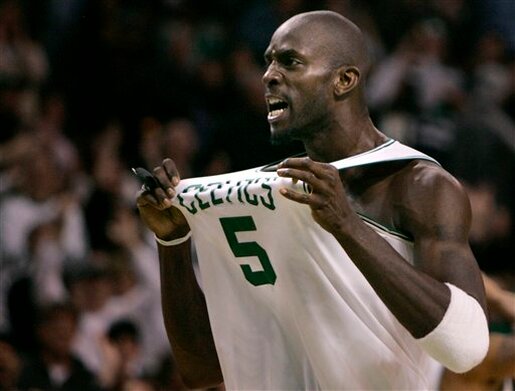 It’s hard for me to rationalise my admiration for Kevin Garnett without simply becoming a fanboy. KG’s arrival in Boston brought back “Celtic Pride”, meant that Paul Pierce (possibly my favourite player of all-time) not only got a ring – but got several more years in green, and all the while, KG was the consummate team-mate, and simply brought an unparalleled level of intensity to everything he did. The homer in me can even go a step further - if he didn't hurt his knee in 2009, I'm not sure Kobe ever wins a title without Shaq. Now I'm not suggesting for a moment that everyone can grow to be 7’2” (I’m not buying he was under 7 foot…), with a "go-go gadget wingspan", but there’s a ton of lessons every player can learn from the way KG approached the game, I thought I’d start with my top three… If you do what you’ve always done, you’ll get what you always got… Garnett trained differently. He recognised the ways the game (and his body) was changing, and made some out of the box efforts to change the way he worked. In the off-season, Garnett was known for sprinting the sands along the Malibu Coastline at 4am. When he saw Beyonce in concert, he noticed her singing and dancing throughout, but took away that she was never gassed. Wanting to be better as a team-mate and a communicator, he began singing while he was running too – trying to ensure that in the dog days of the playoffs, he would still be able to communicate to his team-mates (or, as KG was wont to do from time-to-time, talk trash to opponents) without losing a step, or a breath. Footwork drills that Garnett passed along to Karl-Anthony Towns upon his return to the Timberwolves involved him carefully laying out pairs of shoes, angled to mimic where a defender would be facing, as KG bellowed at his protégé to “Attack the feet”. Garnett paid his sweat tax, grinding in any way he thought could add that extra 1% in the unseen hours. Hold Yourself Accountable First… Never mind the opponents he beasted, the list of team-mates to receive the wrath of KG is unreal. He made Big Baby cry in a game. Cussed-out Rondo, Pierce and Allen over defensive effort and beasted Patrick O’Bryant so badly, the team had to trade him! But Garnett could go to those lengths because of his insane work ethic, and I want to share two of my favourite stories about that… In July of Towns’ rookie season, Garnett showed up in Las Vegas to watch the youngsters in the summer league, and agreed to an informal workout with Andrew Wiggins, Shabazz Muhammad and Gorgui Dieng – three younger team-mates who were also not on the summer league roster. The players booked the gym at Muhammad’s alma mater, Bishop Gorman High. As the trio walked in at 8am, they found Garnett was already there, ‘drenched in sweat, muttering to the basketball, bobbing and weaving like a championship fighter’. Timberwolves owner, Glen Taylor, said he had been there since 6am. Garnett took the opportunity to scold his young team-mates with one simple question… “I thought y’all wanted to be good?” That Garnett could be this kind of role model (in spite of his big contract, balky knees and advancing years) is exactly why his return warranted this kind of attention in Minnesota: Back in Boston, in February 2009, Doc Rivers wanted to keep Garnett fresh. “Kevin had this belief that if you were the leader, you couldn’t miss one snap of practice. But I had this belief that you are 30-whatever and I need you for the whole season.” The pair talked, but Garnett wasn’t happy, telling his coach that he didn’t understand, adding “If I’m sitting, they will see weakness.” Rivers put his foot down, and relegated Garnett to the sideline, where Garnett was pacing, muttering, growling and cursing. Before long, KG had decided he would still get his work in… On the adjacent court, Garnett tracked the movements of the man subbed in for him, Leon Powe. If Powe was in stance, guarding the ball, so too was Garnett – in the same spot, one court over. As Leon corralled a rebound, Garnett grabbed the same (imaginary) loose ball, one court over. Despite Garnett’s respect for Rivers, he ignored his pleas to stop – with Doc eventually canning the entire practice, recognising that the only way he could get Garnett to take time off, was to give the team time off – and even then, Garnett was pounding his chest motioning to his team-mates to come back to the floor and go to work. Garnett could absolutely be a hard-ass on his team-mates… but everyone saw he pushed himself so much harder than anybody else. Being a great team-mate starts with holding yourself accountable to higher standards, before considering pointing the finger at somebody else. Be Authentically You…
If I had to describe Garnett in one word, it would be “intense”. The man’s pre-game routine involved head-butting the stanchion. I saw him dive through traffic for a loose ball in a pre-season game, get down on all fours and bark at Jerryd Bayless, verbally assault hundreds of players and watched the team intro’s with the Celtics end with his primal scream for years. Was all of this “nice”? No. Absolutely not, in fact, a lot of it was barely defensible (even through the most green-tinted of glasses)… but it was KG, nothing was fake in his demeanour or his will to win. In terms of his game, again, he was himself. He wasn’t someone who went out and played “hero ball”, jacking up shots when he was double-teamed late in the game. He was the guy that moved the ball on to the open man and got ready to crash the glass. As a wiry younger player, his handles and range meant he played more at the three spot, before slowly making his way to centre as father time worked him over, and the game changed. He did what he did well, as often as possible. KG was a player who always tried to do the best for his team, and did his best to fit in with them to help everyone to be successful – but he never tried to be anyone but himself, and that’s another lesson I think everyone can take from him. If you’d be interested in a different kind of training session, ONE2ONE BASKETBALL can help. Contact us to arrange a workout, or if you’re not in our area, you can purchase and download our workouts here. By ONE2ONE TeamWe sat down with Essex guard Rory Winter to ask five quick questions about how university in England measures up to being in a Junior College in the States… Rory Winter was a standout junior player at Ipswich Basketball Club and IBA Copleston, where his successes on-court earned him a spot at the Deng Camp, international call-ups and an opportunity to play Junior College at Iowa Lakes Community College.
Having completed one year of JuCo, Rory opted to come home and take a place at the University of Essex (for whom his debut season has just wrapped-up) – making him an ideal person to compare the two experiences, and share them with young prospects who may also be weighing-up heading stateside in the near future… As a student-athlete, being a student comes first – so can you tell us a little about how the academics compare between here and the states? The ease of the classes there was one of the biggest differences, to be honest. It was a little bit like being back in high school, and was a significant step forwards coming back to a university setting in the UK. How about student life? Socially, isolation was a factor – there was very little to do other than basketball – and the school was extremely small compared to Essex. On-court, what would you say was the biggest difference? The pace of play was a lot faster than most of the BUCS teams – despite a longer shot clock – but this was mainly down to our conference being so guard-heavy, whereas the majority of the teams we face in BUCS are a little more positionally-balanced. That being said, there’s a few of the teams in BUCS that play at a similar pace to the competition out in America. The other stark difference is just the availability of facilities and volume of practices. In the states, the court was always available, and we would have a two hour practice – minimum – every day, other than on recovery days after back-to-back games. So what would you say is the most similar between the two levels? The standard of coaching both at Essex and in the States is consistently high, as is the framework within which we work as athletes. And is there anything which you think is of a higher standard here? Without question, we have much better quality facilities here at Essex – and the same can be said for a few of the schools we compete against… it’s just that we have a relative lack of access to use them compared to being back out in the States. Check back with us regularly for more player insights and interviews - and don't forget you can book a workout with a ONE2ONE Basketball Coach and Boost Your Backpack by getting in touch with us here. By ONE2ONE TeamWhy don't people like Mondays? 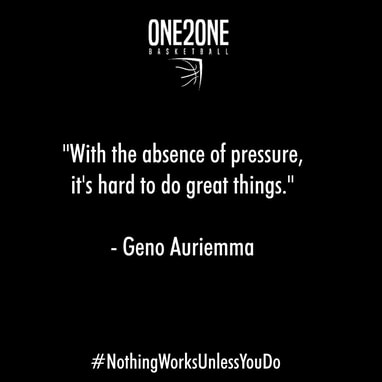 Social media is a powerful tool, and yet one of the messages we seem to receive from it on a VERY regular basis is that people need a bit of a boost on a Monday morning... We're huge fans of Jon Gordon, and really believe him when he says: "Mondays are a great day to focus on what you get to do rather than what you have to do." So you're stuck in traffic? - At least you have a car! You're working a job you don't like? - You have a job! You've got a mortgage to pay? - You have a home! It's not easy to stay positive - but why start a day negatively in the first place? Gary Vaynerchuck went viral last year for telling people who "live for the weekend" that their "sh*t is broken", and again - we're given to agree with him there! We spend approximately one-third of our week working (or in school) - we shouldn't need two days in every seven to mentally pick ourselves up from the damage that we perceive is being done to us from our work! For the athletes out there - you're even more fortunate... Aside from having friends and team-mates, and experiences which will last a lifetime, you have a release that keeps you healthy and focused - even if the season is over - you can go scrimmage, work out or get some shots up! But motivation alone won't make you a better athlete, and trying to build your performance based solely on external motivation is like building a house on a foundation of sand. In addition to being self-motivated, you need a plan of action to improve - and that's where we can help! Our coaches can work with you to build a programme with you to help you boost your backpack and make next season your best ever, just get in touch to arrange your workouts... and if you are in need of a little extra motivation or inspiration - then follow us on twitter, where we share a little something with you every day to help you to keep your fire stoked! |
Archives
June 2019
|
||||||

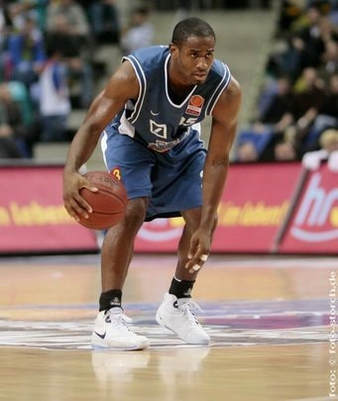
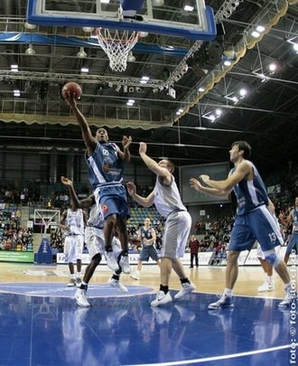
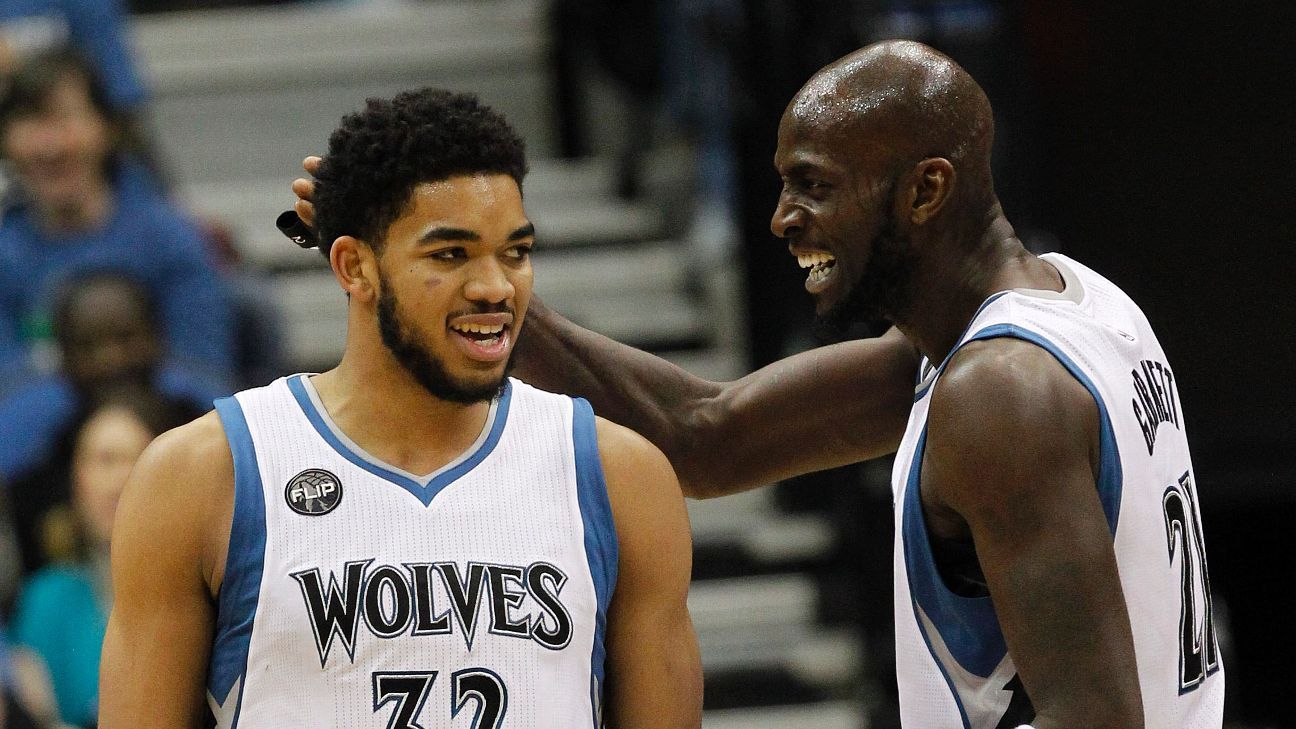
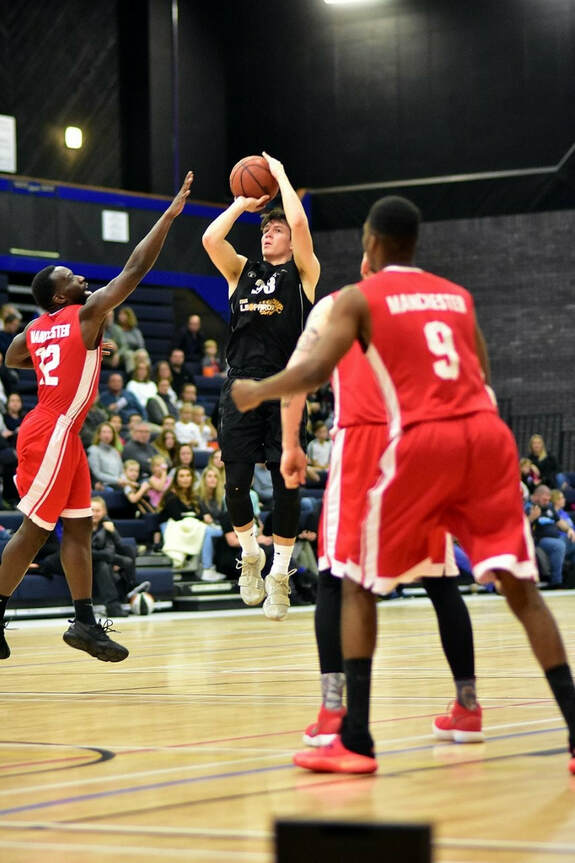
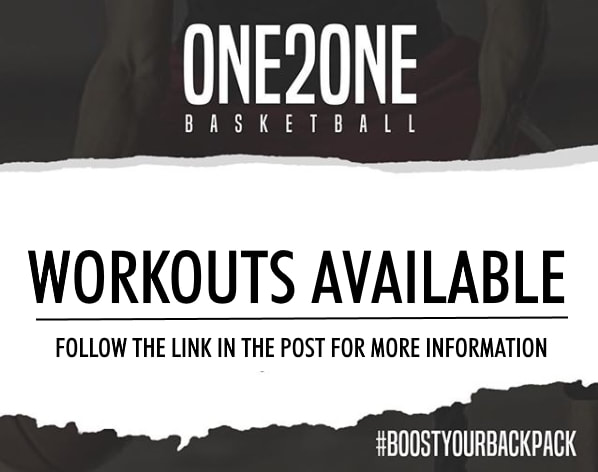
 RSS Feed
RSS Feed